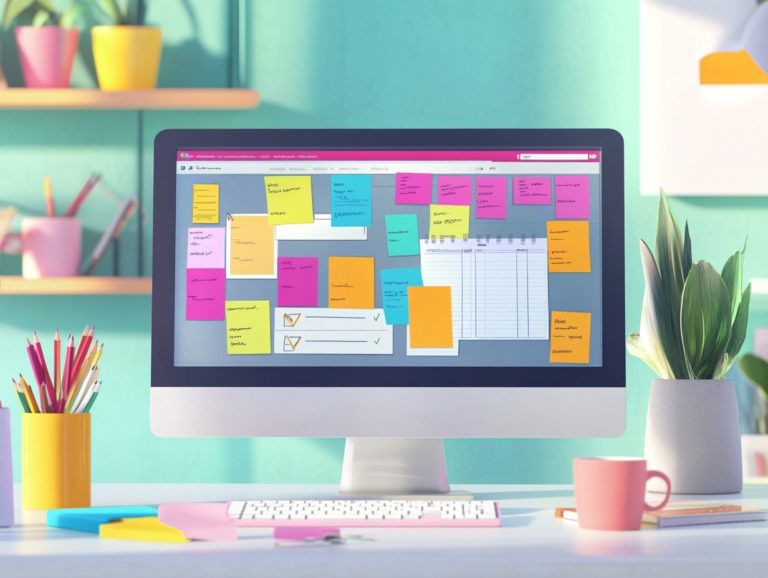the evolution of task management tools over time
Task management tools have evolved significantly over the years, changing how you organize and prioritize tasks.
This article explores the history and development of these essential tools, highlighting the key features of modern systems that enhance collaboration and integrate with other applications.
You ll discover popular tools available in the market, along with their pricing, and look forward to emerging trends that will shape the future of task management.
Join us as we explore how these tools can boost your productivity!
Contents
- Key Takeaways:
- The History of Task Management Tools
- Key Features of Modern Task Management Tools
- Popular Task Management Tools in the Market
- The Future of Task Management Tools
- Frequently Asked Questions
- What are task management tools?
- How have task management tools evolved over time?
- What were the earliest forms of task management tools?
- What technologies have contributed to the evolution of task management tools?
- How have task management tools improved productivity?
- What are some popular task management tools currently available?
Key Takeaways:
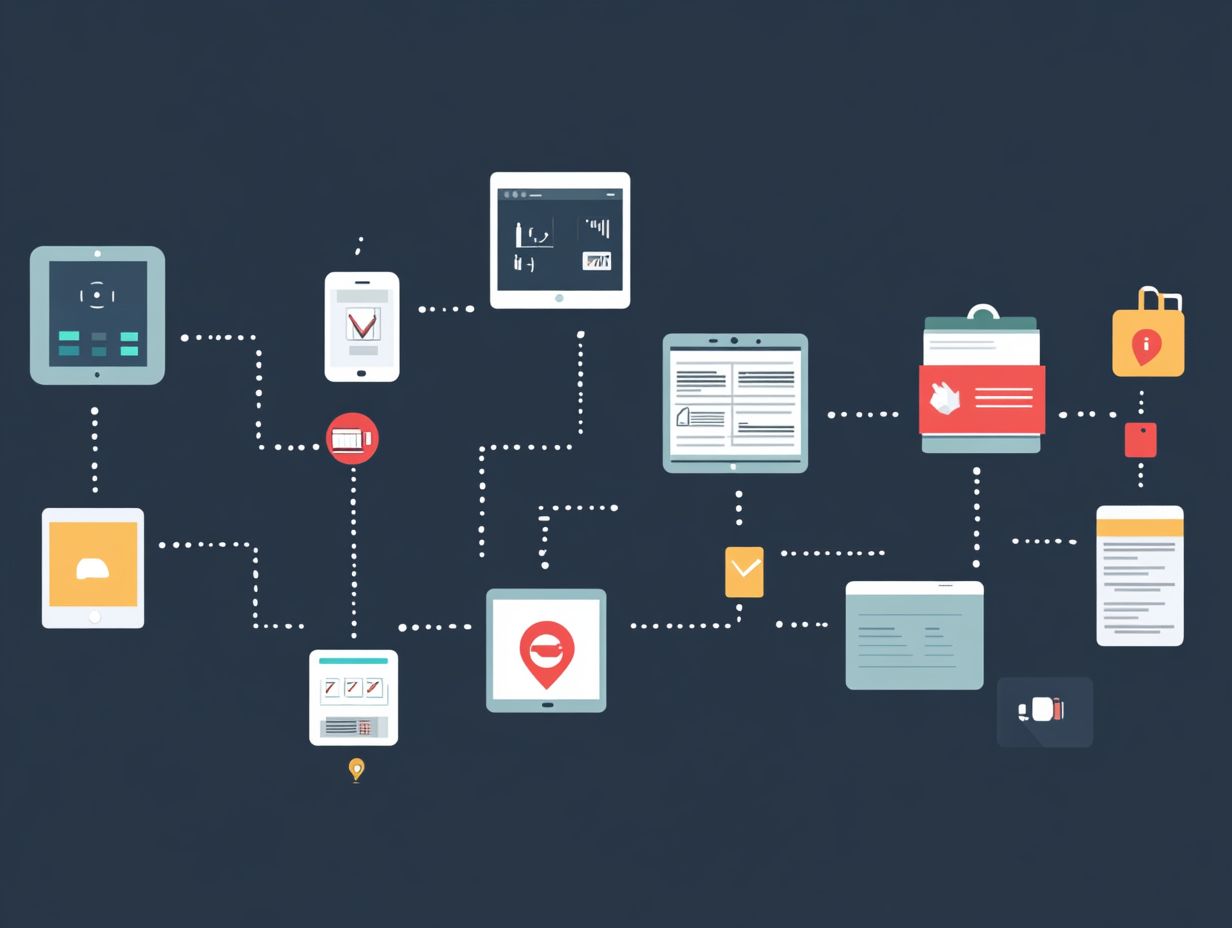
Task management tools have come a long way from early methods like pen and paper to digital platforms, making it easier and more efficient to manage tasks.
Collaboration and integration with other tools are key features in modern task management tools, allowing for seamless communication and streamlining workflow.
With many options available, it s important to compare features and pricing to choose the best task management tool for your needs.
The History of Task Management Tools
The history of task management tools showcases a dynamic evolution. It began with simple manual methods and advanced to sophisticated digital solutions aimed at improving project management and enhancing team collaboration, reflecting the future of task management tools.
Reflecting on the early days of pen and paper, you ll be amazed at how far we’ve come.
Today, cloud-based platforms like Asana and Trello highlight the need for efficient tools specifically tailored to meet enterprise demands and tackle productivity challenges.
Early Methods of Task Management
In the early days, you relied on manual processes using Gantt charts, checklists, and physical planners. While these tools were innovative at the time, they often proved cumbersome.
For example, Gantt charts were essential for visualizing project timelines, but their complexity could easily overwhelm you, especially with overlapping tasks. The static nature of these charts made it challenging to adapt when priorities changed or unexpected delays occurred.
Navigating frequent updates and tracking progress manually showed that sticking solely to these foundational techniques wasn t enough for complex projects. This often led to reduced visibility and coordination among team members, complicating resource allocation and task completion.
The Rise of Digital Task Management
The rise of digital task management has transformed project management practices, introducing tools designed to enhance collaboration and streamline timelines.
Platforms like ClickUp, Motion, and Jira have revolutionized traditional methods of task assignment and workflow management. These tools allow you to automate repetitive tasks, freeing your time for high-priority activities that drive project success.
For instance, ClickUp provides a customizable workspace that adapts to your team s needs. Motion simplifies scheduling by prioritizing tasks intelligently, while Jira excels in managing user stories to ensure tasks align with project goals.
This shift boosts efficiency and fosters better communication among team members, creating an environment where collaboration thrives and project objectives are met with ease.
Key Features of Modern Task Management Tools
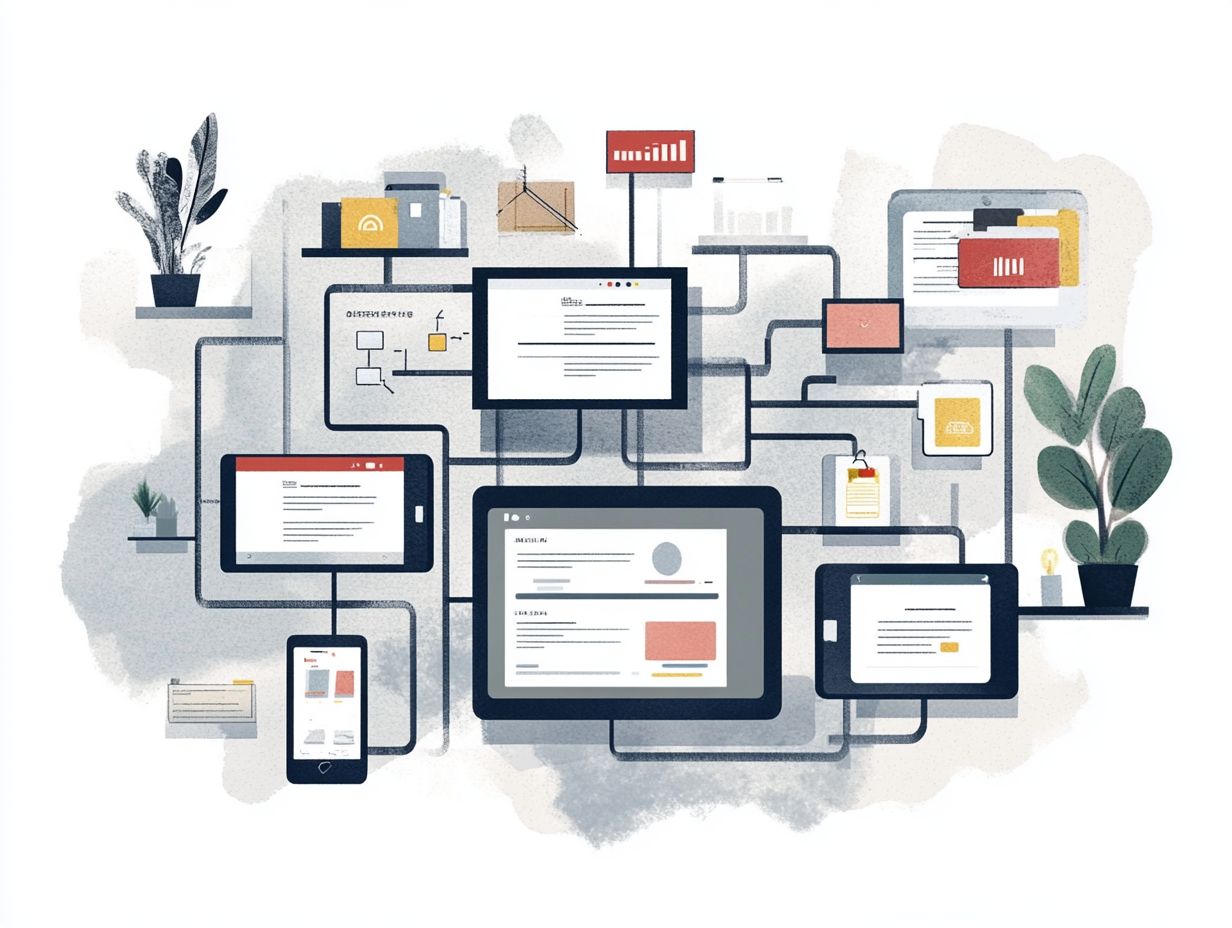
Modern task management tools come with essential features designed to enhance productivity and foster collaboration.
These tools help you navigate project complexities confidently, ensuring you stay on top of every detail.
Explore these modern task management tools for yourself and see how they can transform your productivity!
Collaboration and Communication
Collaboration and communication are vital components of effective task management. They allow you and your team to work together seamlessly using advanced tools that help teams collaborate.
These tools streamline project workflows and create an environment where team members can share ideas freely. This ensures everyone stays updated on progress in real time.
Integrating AI planning features helps you prioritize tasks efficiently. This ensures everyone is clear about their roles and deadlines.
This interconnectedness reduces misunderstandings and boosts accountability, enabling you to tackle challenges with a unified strategy.
When productivity hurdles arise, an adaptive communication framework lets your team pivot swiftly, ensuring that project goals are consistently achieved.
Integration with Other Tools
Integrating task management tools with other productivity software is essential. It allows you to streamline task assignments and optimize resource allocation.
These integrations help you organize tasks and enable real-time collaboration among team members. This ensures everyone stays aligned on project goals.
For example, connecting a modern task management tool with platforms like Smartsheet leverages data visualization features for better progress tracking.
Similarly, Monday.com offers impressive integrations that transform complex workflows into manageable processes, fostering accountability and facilitating quick decision-making.
The impact of these integrations on your project management workflows is significant. They enhance communication, reduce duplication of efforts, and lead to improved project outcomes.
Popular Task Management Tools in the Market
In today s competitive landscape, several task management tools stand out due to their unique features and capabilities.
- Asana
- Trello
- ClickUp
- Jira
- Monday.com
Each tool offers tailored solutions to meet various project management needs, ensuring you choose the right fit for your requirements.
Comparison of Features and Pricing
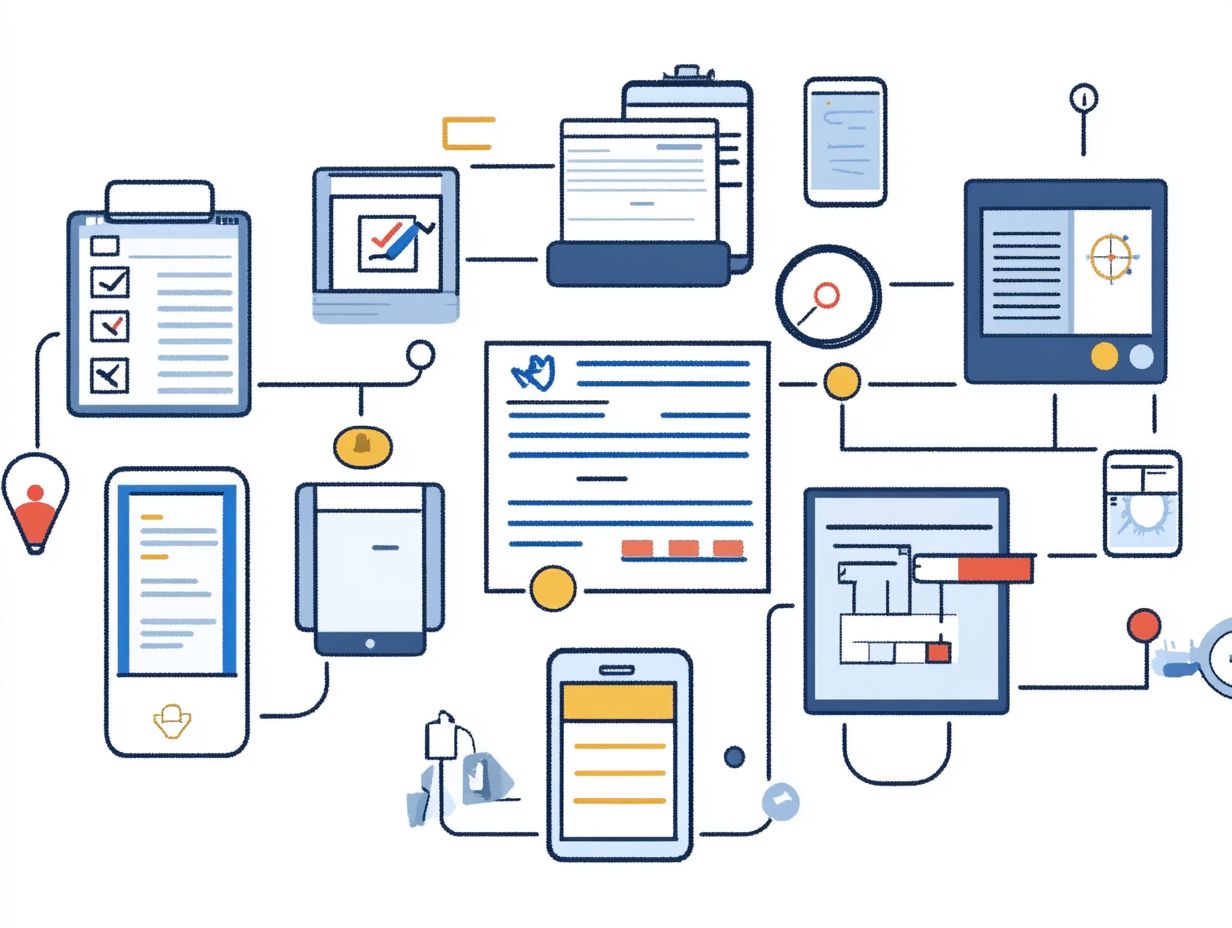
A comprehensive comparison of features and pricing among leading task management tools reveals distinct advantages and disadvantages, enabling you to make informed decisions.
By examining elements such as user interface design, collaboration capabilities, and integration options, you gain insights into how these tools align with your workflows.
Some applications excel in visual task representation, perfect for teams thriving on project timelines and user story management.
Pricing models range from free basic plans to premium subscriptions. These models guide you toward a sustainable choice that enhances productivity while fitting your budget.
Selecting the right tool will supercharge your processes and support seamless communication, keeping you on track with your objectives.
The Future of Task Management Tools
The future of task management tools is on the brink of transformation, driven by emerging technologies and evolving user needs.
Expect a greater emphasis on AI-driven planning and sophisticated collaborative tools that elevate task management.
Emerging Trends and Technologies
Emerging trends and technologies in project management signal a transition toward intelligent and adaptive task management systems. These systems utilize AI and machine learning to boost efficiency.
By automating routine tasks and delivering insights through data analytics, innovative tools streamline workflows and prioritize tasks based on urgency and impact.
With AI-driven features at your disposal, you gain a clearer understanding of project timelines, enabling better scheduling and resource allocation.
These advanced technologies tackle common productivity hurdles like task overload and miscommunication, resulting in significantly improved project outcomes.
Organizations that embrace these advancements will experience a remarkable increase in efficiency and collaboration among team members, propelling them toward greater success.
Predictions for the Evolution of Task Management
Predictions about the evolution of task management tools indicate a constant improvement of features aimed at boosting efficiency and addressing the complex needs of modern project management.
As organizations focus more on collaboration and agility, expect these tools to include intuitive interfaces powered by artificial intelligence. This will make assigning tasks a breeze and provide personalized insights based on your team’s performance trends.
The integration of real-time communication channels and automation capabilities will streamline workflows. This way, your team can dedicate more energy to strategic initiatives instead of getting bogged down by mundane administrative tasks.
With remote work on the rise, features that enhance virtual teamwork and provide comprehensive analytics are likely to emerge. It’s essential to choose tools that will shape a future where project management becomes more adaptive and data-driven.
Frequently Asked Questions
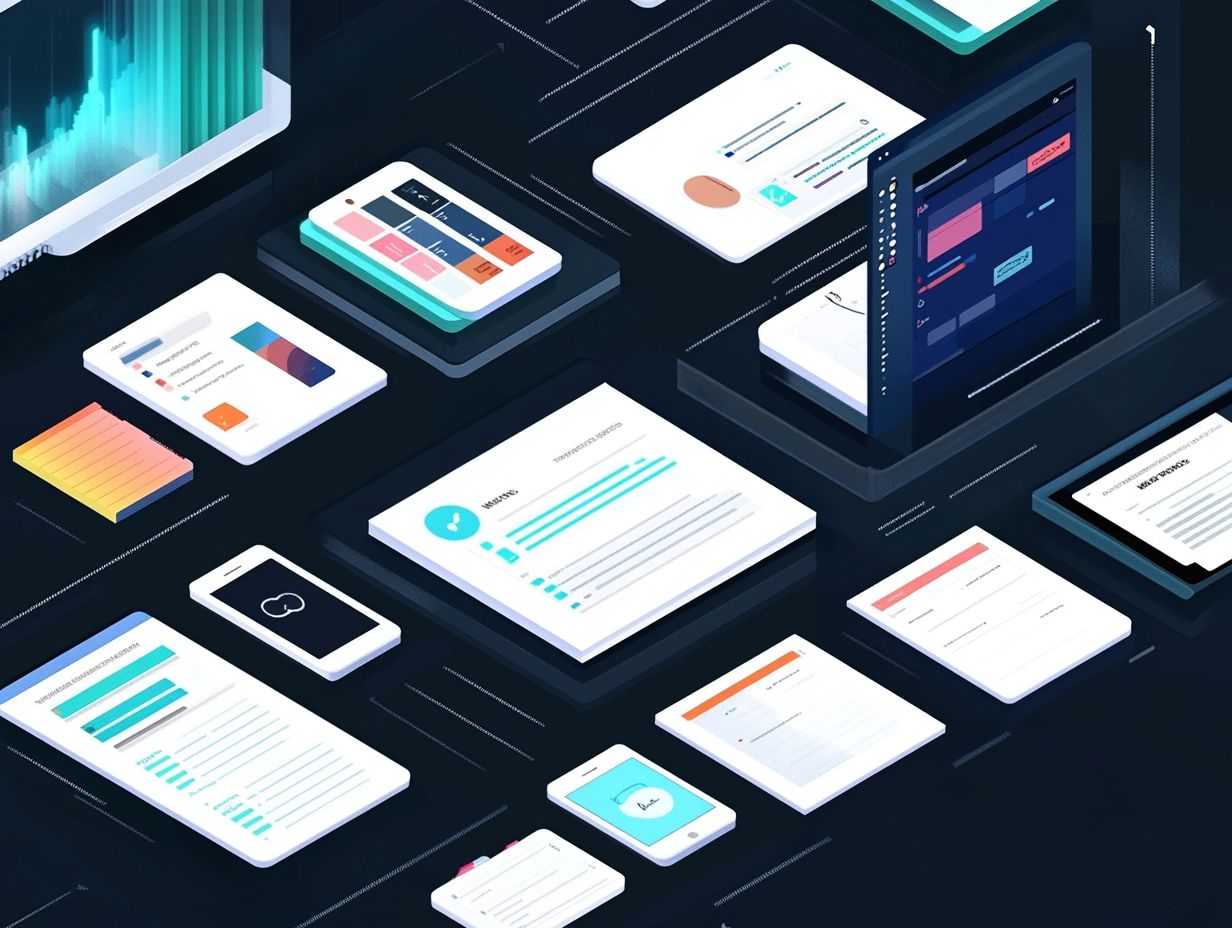
What are task management tools?
Task management tools help you and your team stay organized and on track! They are software programs or applications designed to assist in organizing, tracking, and completing tasks efficiently.
How have task management tools evolved over time?
Task management tools have progressed from simple paper-based systems to sophisticated digital platforms. They now feature collaboration, automation, and seamless integration with other productivity tools.
What were the earliest forms of task management tools?
The earliest forms of task management tools included simple to-do lists and calendars, typically paper-based and requiring manual updates. Understanding the role of task management tools in project success has evolved significantly since then.
What technologies have contributed to the evolution of task management tools?
Advancements in technology, especially in computers, software, and the internet, have significantly influenced the evolution of user-friendly task management tools.
How have task management tools improved productivity?
These tools enhance productivity by streamlining task organization, providing real-time updates, allowing for collaboration and delegation, and offering integrations with other productivity applications.
What are some popular task management tools currently available?
Some popular task management tools today include Asana, Trello, Todoist, Microsoft To Do, and Google Tasks. These platforms offer a variety of features to cater to different user needs and team dynamics.

